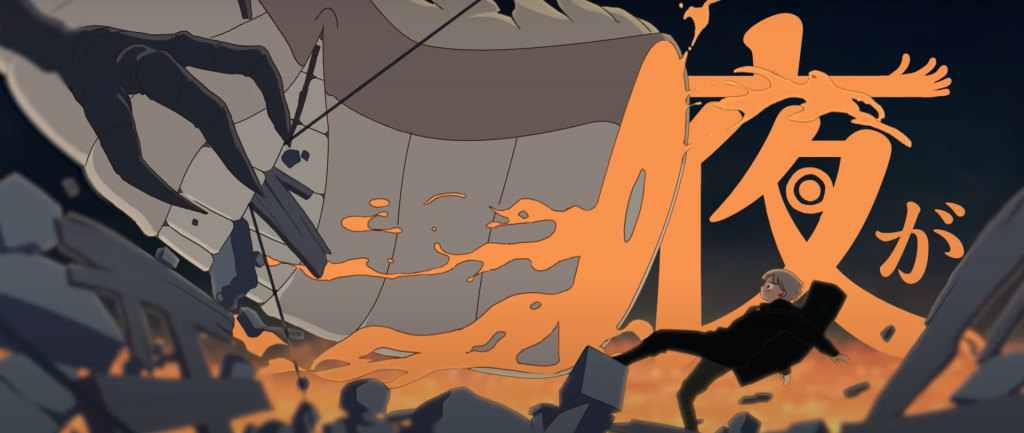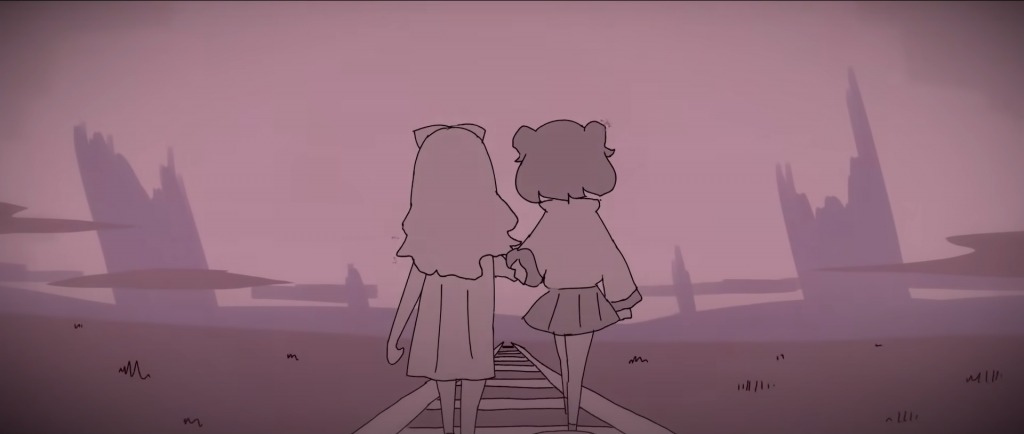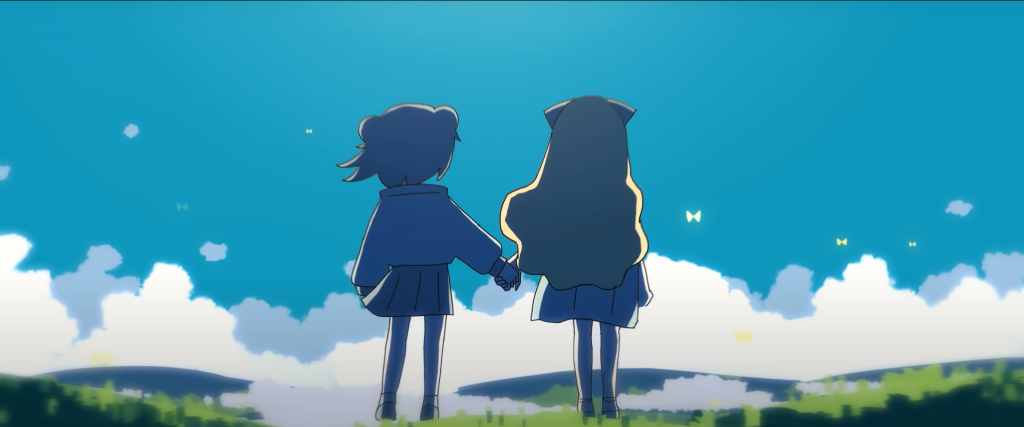Everyone has listened to music at some point, I’m sure. Music is all around us, from people with their headphones on in the library trying their best to focus on their studies, to that little earworm of a tune you heard over the speakers in the supermarket that you’re gonna be humming for the next hour. Music can be used for all sorts of purposes and in all sorts of settings. But more often than not, the songs we listen to are just that, just a catchy tune with optionally some lyrics to tell you a message of some sort. Most songs stand apart from each other, unconnected and atomic, even when their style is somewhat similar. While this is far from a bad thing, and I enjoy them as much as the next person, I like it when songs have a little something “more” to them. So imagine my joy when years ago, I stumbled into some Japanese music composed by an artist named “E ve”, or simply Eve. Listening to his songs changed the way I look at music, and today I want to share my experience with his music, as well as the music of another fantastic Japanese composer, Harumaki Gohan.
Eve’s mysterious music
When talking about music, it’s always best to experience it first-hand. So before reading further, I implore the reader to listen to this song by Eve, How To Eat Life (Inochi No Tabekata in Japanese). This will give the reader a small taste of what his music is like. So what do I find so captivating about Eve’s music? Well, first and foremost, it’s just so… catchy. The music itself I find incredibly catching, and despite me not speaking Japanese, the lyrics are surprisingly easy to learn so I can sing along (no shame!). But easily its biggest aspect is its sheer weirdness. Watching the video as you listen to the music, makes you wonder what’s going on, and if there is perhaps some deeper meaning to what is being sung. With imagery such as down below, it’s hard not to wonder.

And indeed there is a deeper meaning, there almost always is in his music. As you start to read deeper into the lyrics and their meaning, you can see these songs all talk about real-life issues. Some talk about identity crisis, some about depression, others about nostalgia, the list goes on. That’s what I find so fascinating about Eve’s music: it doesn’t just sound good and make me want to sing and dance, it makes me think. The Youtube community following Eve is always eager to theorize about what the composer’s new songs could be about. Essentially, Eve’s music is modern poetry in a whole new form, and I am all for it.
Harumaki Gohan’s musical storytelling
While Eve is by far my favourite composer, Harumaki Gohan comes in at a close second. Once again, before you continue reading, I highly advise giving this song a listen. This is Cobalt Memories, a personal favourite of mine (careful, it’s a bit of a tearjerker). Having listened to this, you have likely already come across one of my favourite aspects of Harumaki’s music: emotion. The “feels”, as we say these days. Every single piece this composer creates, without exception, is bittersweet and heartrending. His ability to put so much emotion into a four-minute-long story is something that I, as a story writer myself, find very admirable. But it’s not just the ocean of tears I have spilt over these songs that keep me coming back for more. To illustrate my point, allow me to show you a frame of his song “Reunion“, followed by a frame from his song “Promise“


It might be somewhat hard to see, but these two are the same characters! And therein lies what I find truly fascinating about Harumaki Gohan’s songs. Where many songs are atomic and stand-alone, Harumaki instead chooses to link his songs together with an evolving story. Every song, even if it may sound completely different, moves along one of his storylines. These two children’s story is but one example, Harumaki has many more small story arcs running through his music. It makes every new song he releases exciting, as you come to see whose storyline shall progress this time, or if perhaps a whole new story shall begin. You don’t just listen to Harumaki’s music so much as you experience it, and it’s an experience I won’t forget.
The mysterious power of music
To summarize, when I discovered these two composers years ago, I was shown a whole new application of the medium of music. Between mysterious and fascinating imagery and heartrending and beautiful stories, there is a lot to enjoy here. And the final piece of the puzzle of why I believe these songs are so effective is because of the nature of music. Earlier I described Eve’s music as “modern poetry”, but one edge that I believe Eve’s and Harumaki’s music has in terms of (emotional) impact, is because music itself has a way of making us feel things. The combination of an emotional story and beautiful music makes the intended emotions hit so much harder. Music truly is a fascinating thing, and I look forward to seeing what Eve, Harumaki, and many other amazing artists out there will do with it.


Recent Comments